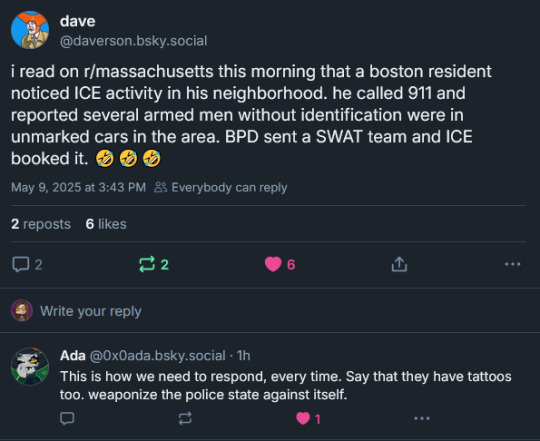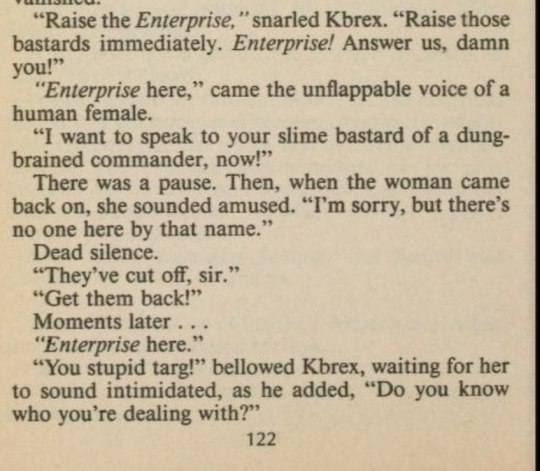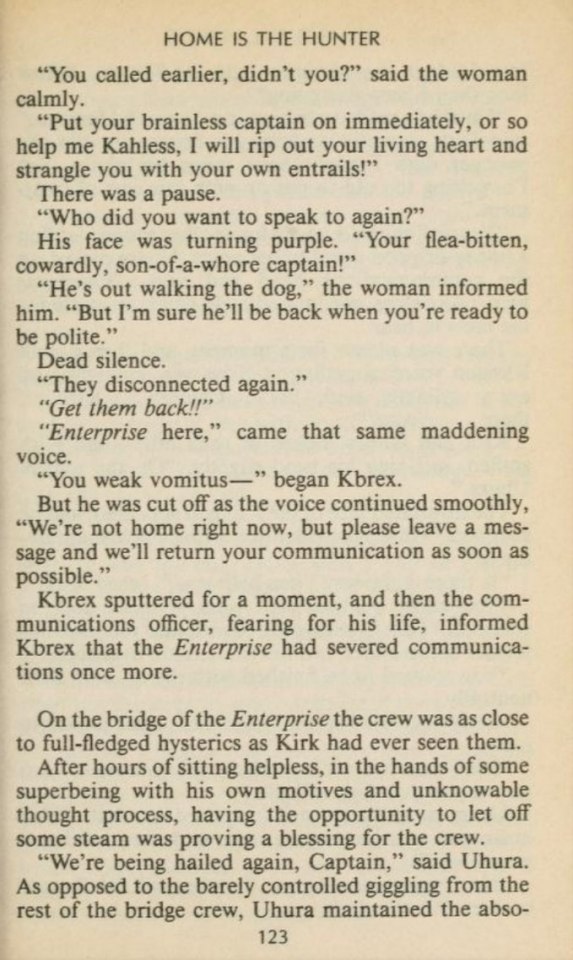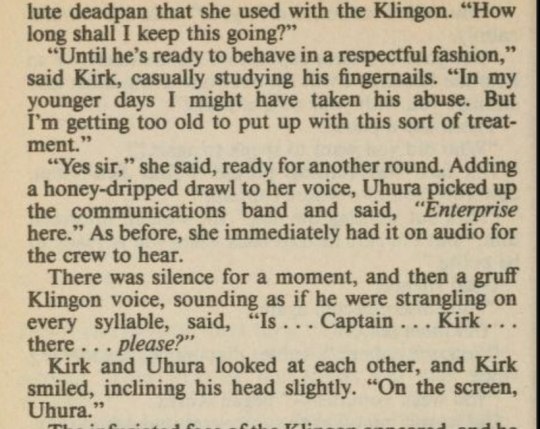Katie, Writer and All-Around Fangirl - 33, White, she/her, cis-het. Due to the nature of the fics I write, this page should be considered 18+ only.
Last active 60 minutes ago
Don't wanna be here? Send us removal request.
Text
I don’t know how many boys follow me, but I gotta bet there’s some. I just wanna tell y’all to be careful.
Abusive girls exist and what they’re doing is seen as like “badass tough don’t take no shit” but your girl should not hit you. Ever.
She should not demand for you to hand over your phone to look through.
She should not yell at you and humiliate you either alone or in front of people.
She shouldn’t make you distance yourself from your friends or family.
She shouldn’t scratch you or twist your arms.
She should not call you names.
She shouldn’t tell you ‘she’ll kill herself if you break up’
These are just a few examples of abuse and it’s just seen as okay when girls do it and god knows I’ve fallen victim to it a few times, but you shouldn’t have to.
Never worry about not being in a relationship. If they’re worth it, they won’t hurt you.
No one has the right to hurt you.
158K notes
·
View notes
Text
do you ever say something and then think "wow this isnt even a bit. im just like this"
217K notes
·
View notes
Note
Please don't, it's delicious!
"Swallow it. All of it." & “Suck on it” with Bobby maybe? 👀 unless…

You better be over 18 if you read below the cut, yeah?
From this list here
"Baby, please."
You smirked down at your boyfriend with an amused look. He was usually so calm and collected, shy maybe, but so unlike the needy mess you currently had him in. You hadn't even really touched him yet.
Bob's head was thrown back against the pillows, sweat forming on his brow as you slowly stroked him, avoiding the angry red tip with every swipe up his hard length. His hips thrust up with every pass, desperately seeking more friction from you as he let out a high pitched whine.
"What is it, baby boy?" You cooed down at him, running your other hand up his chest as you gave a gentle squeeze to his tip. He let out a strangled groan, tossing his head to the side as he gazed up at you through lidded eyes, mouth parted and swollen from your earlier kisses. "Use your words, Bobby. I can't give you what you want if you don't tell me."
Bob let out another wanton gasp as you stroked over his tip once more, hips raising off the bed to try and chase your hand. You frowned down at him, nails raking down his chest in a warning.
"Suck on it," he whimpered, eyes pleading with you as you began to stroke him a little harder. "Please, honey. Please."
You hummed, letting go of him. He whined out, reaching out a hand to you, but you smiled up at him softly as you eased your way down in between his thighs. You took his length back in your hand, continuing your slow torture of him as you gazed up at him through your lashes.
"I think you can do better than that, Bobby," you murmured. "You're so hard, baby, it must really hurt. Want you to beg for me, sweet boy. Tell me how much you want to cum."
"Wanna cum so fucking bad, baby," he gasped, tears gathering in the corners of his eyes as he stared down at you. "I'm so hard baby, please. Don't wanna cum in your hand. Want you to make me feel so good with that sweet little mouth of yours, please."
"Well," you smirked. "Since you asked so nicely."
You placed a soft kiss to the tip of his cock before slowly taking it into your mouth. Bob let out a strangled moan above you, hands flying down to fist in your hair as you started bobbing up and down on his length. With each pass, you were able to take more of him down your throat, and soon your nose was brushing up against the curls that surrounded his base. You lifted one of your hands from his thigh to massage his balls, earning a broken cry from the man before you.
"I'm not gonna last long, sweetheart," he moaned breathlessly, hips starting to thrust up as you gagged on his length. You loved when Bob got like this. So debauched and needy that he lost control and the usual shyness that surrounded him was long forgotten. You gagged around him as he gave a particularly hard thrust into your mouth, earning another loud groan from him.
"Fuck, baby! I'm not gonna last long. Love how hot and wet you feel around me. Feels like you're sucking the soul right out of me."
You smirked around him, giving a particularly hard suck that had his thighs quivering beneath you.
"FUCK!" He shouted, throwing his head back against the pillows before leaning up to look down at where his cock disappeared down your throat. He could see the slight bulge where his length ended as you continued to gulp him down like he was the air you needed to breath.
"Bet you're so fucking wet, huh, honey?" He groaned, thrusts getting harder the closer he got. "Haven't even touched you and I bet you're already dripping, yeah? I know how needy you get when you're chokin' on my cock like this. Know you could come just from this. Fuck, it feels so good. You feel so fucking good with your lips wrapped around me, honey."
You could feel yourself growing wetter at his words. You knew you had to be dripping by this point, but you were so focused on his pleasure that you paid little mind to your own. Bob's breaths were coming out in a combination of heady groans and desperate gasps as he chased his high.
"Oh fuck, I'm close. I can feel it, baby. It's comin', and it's all gonna be for you. Can feel your throat gripping me so tight, so fucking tight - JESUS. Oh shit, yes. Keep sucking me just like that, baby. JUST. LIKE. THAT. SHIT."
You felt him twitch, and red hot spurts of cum shot down your throat. You eagerly swallowed them down, and Bob's hands stroked through your hair as he came down from his high.
"That's it, baby," he cooed breathlessly, stroking his thumb over your cheek to collect the tears that had escaped the corners of your eyes as you continued to work your mouth up and down his length. "Swallow it. All of it. That's my good girl."
You continued to suckle on him as the last remnants of his orgasm washed over him, his hips twitching from the slight overstimulation as you made sure to swallow every last drop.
Slowly, you pulled up off of him with a quiet pop. Bob's thumb reached down to brush the corner of your lip, wiping away some of the spend that had leaked from your mouth. He offered it to you, and you latched onto it obediently, twirling your tongue around the digit as you suckled. Bob let out a shuddering breath as he pulled his thumb back. He reached down to pull you up, pressing his lips to yours in a heated kiss. He licked languidly into your mouth, humming at the taste of himself on your tongue.
You pulled away, smiling hazily at him. He returned your smile, resting his forehead against yours as he chuckled.
"How's about you lay back and I return the favor. What do you say, pretty girl?"
278 notes
·
View notes
Text
I HATE MORAL OCD. well i shouldnt say hate thats a strong word. and i dont want to sound like i hate people WITH moral ocd because i dont of course. i just hate having it. but i shouldnt think that, i do like having morals, its just stressful to be thinking about them so constantly and scrutinizing every little thing i do or think. but really thats the least i could do so i should at least try, right? just because i suffer from— no, struggle with moral ocd doesn’t mean i should just stop thinking about things all together, thats not what im saying and i should make that clear, but i
57K notes
·
View notes
Text
I think a surprising amount of writers don’t realize that tragedies are supposed to be cathartic. They’re intended to result in a purging of emotion, a luxurious cry; the sorrow caused by a great tragedy is akin to fear caused by a good horror movie – it’s a “safe” sorrow, one that is actually satisfying to the audience. It can still be beautiful! It’s isn’t supposed to just be salting the earth so nothing can grow.
But that’s how you get grimdark: writers who don’t realize that they’re supposed to be doing something with the audience instead of to the audience.
170K notes
·
View notes
Text
"what did students do before chatgpt?" well one time i forgot i had a history essay due at my 10am class the morning of so over the course of my 30 minute bus ride to school i awkwardly used by backpack as a desk, sped wrote the essay, and got an A on it.
six months later i re-read the essay prior to the final exam, went 'ohhhh yeah i remember this', got a question on that topic, and aced it.
point being that actually doing the work is how you learn the material and internalize it. ChatGPT can give you a short cut but you won't build you the the muscles.
38K notes
·
View notes
Text
Btw, that idea that privilege makes you morally evil and suffering makes you morally good is just repackaged versions of the Christian concepts of the evils of luxury and the holiness of martyrdom. Hope this helps!
20K notes
·
View notes
Text
Wow, now there's a bot going around on Ao3 telling people that the "moderators" will delete works from "deprecated" fandoms and impose bans.
Fearmongering bullshit, but it's fearmongering bullshit that seems to be taking advantage of the recent spotlight series in order to trick authors into deleting their fics.
Just. Why.
What the hell does anyone get out of making these bots.
31K notes
·
View notes
Text

crossposting here bc this tactic needs to spread like wildfire
67K notes
·
View notes
Text
youre telling me a ham fisted this metaphor??
176K notes
·
View notes
Text
This gotta be the funniest Enterprise-Klingon exchange ever:



11K notes
·
View notes
Text
"If you use em dash in your works, it makes them look AI generated. No real human uses em dash."
Imaging thinking actual human writers are Not Real because they use... professional writing in their works.
Imagine thinking millions of people who have been using em dash way before AI becomes a thing are all robots.
REBLOG IF YOU'RE A HUMAN AND YOU USE EM DASH
35K notes
·
View notes





